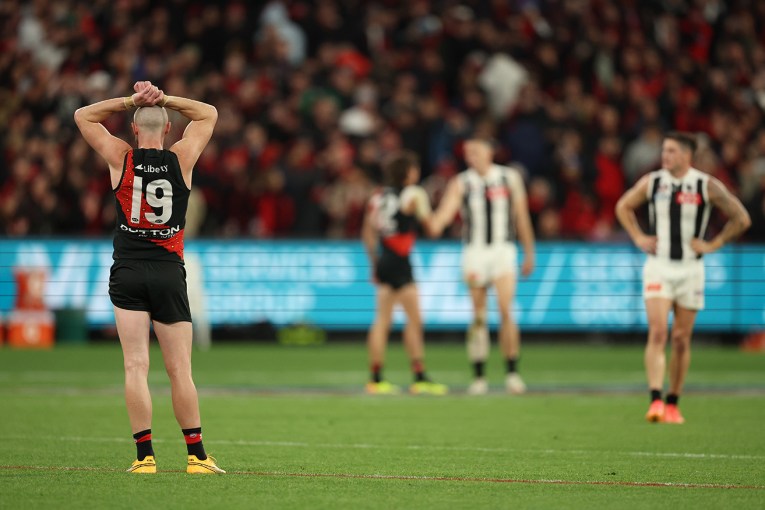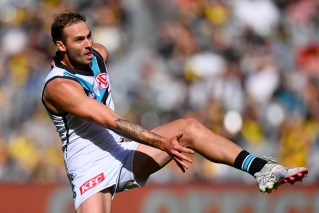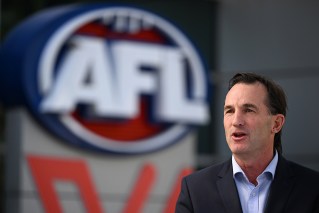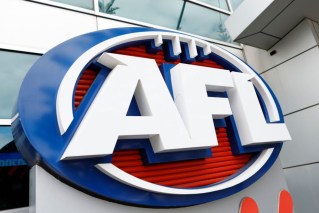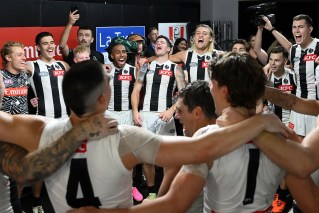Buddy revelation has ‘moved the goalposts’ on mental illness
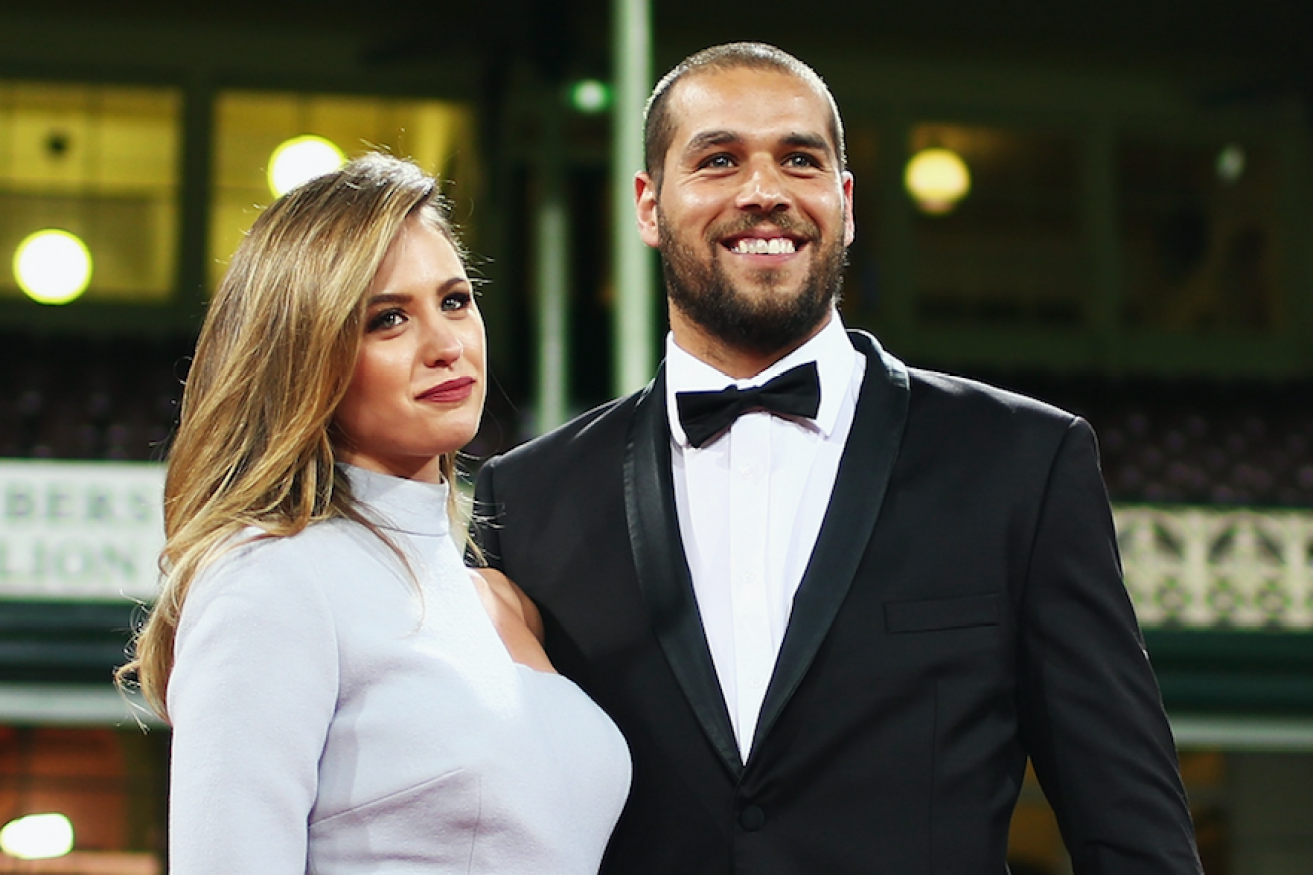
Buddy is engaged to model Jesinta Campbell, who is currently overseas shooting a travel show. Photo: Getty
It caught Australia by surprise. An undisputed star of Australian sport admits through his club that he is suffering from an “ongoing mental health condition”.
Yes, he’s got the model fiancée, a huge contract, superhuman talent. His team is in the running for the premiership and his condition has sidelined him for the first week of the AFL finals.
This reminds us that mental illness can strike anyone, anywhere.
• Franklin ruled out of Swans vs Fremantle qualifying final
• Vocal hero: Why Mitch Clark’s battle inspires
• Even poor AFL clubs can enjoy finals glory
Experts have heralded Franklin’s call as “a huge step forward for mental health generally”.
One of them, Beyond Blue founder Jeff Kennett, said the announcement “moved the goalposts” in Australia accepting mental illness as a legitimate ailment.

Football has always looked inexplicably easy for Buddy Franklin. Photo: Getty
He told The New Daily that Franklin being comfortable missing a final due to poor mental health was “sad”, yet “wonderful”.
“This just shows you how tremendously we have moved the goalposts after the last 10 years,” Mr Kennett said.
“Ten years ago … many would have admitted to their illness after they’d stopped playing, many would have continued playing while ill, which only made the condition worse.
“It is a sad day, for Buddy and the Sydney Swans.
“But it is a wonderful day in clearly illustrating how much we’ve changed the goalposts in terms of mental illness in Australia.”
Franklin was hospitalised on Friday after suffering a seizure at a Bondi cafe, but was released the next day and played in his side’s win over Gold Coast.
The club confirmed on Tuesday evening that Franklin suffers from “mild epilepsy” and the seizure was not related to the mental health condition. In early 2014 he suffered a seizure at home two months before the start of the season.
Mr Kennett cited two other AFL players, Nathan Thompson [retired] and Mitch Clark, who previously confessed their mental illness while playing.
He suggested they’d paved the way for someone as famous as Franklin to go public.
“When a leading sportsman can admit in public he is not well … I think that is a huge step forward for mental health generally,” Mr Kennett explained.
“It just adds credibility to the work we’ve been doing at Beyond Blue … he [Franklin] has got to be congratulated.”
Confession has ‘had a significant impact on the community’
Former Sydney Swan and North Melbourne premiership player Wayne Schwass was one of the first players to admit to suffering from depression after retirement.
Now a commentator and mental health advocate, Schwass told Fox Sports News that going public “will have a positive impact on him [Franklin]”.
“Already today it has had a significant impact on the community,” Schwass said.

Buddy is engaged to model Jesinta Campbell, who is currently overseas shooting a travel show. Photo: Getty
Former Australian of the Year and mental health campaigner Patrick McGorry treated Schwass.
He is researching mental health conditions in athletes and is working with the AFL, its administrators and players in combatting mental illness.
He told The New Daily that Franklin’s confession was a sign sport is “beginning” to transition out of its potentially harmful ‘toughen up’ attitude to mental health.
“Confessing to mental health problems has got nothing to do with toughness,” he said.
“But the culture of sporting organisations hasn’t been that conducive to people acknowledging these problems.
“The AFL is starting to deal with it in a good way. Things are changing, but what has worked against it is this ‘macho-culture’”.
Mr McGorry singled out AFL football operations manager Mark Evans for praise.
He said he is working with Evans in improving the AFL’s approach to understanding mental illness.
“They [the AFL] are trying to deal with it,” he said. “It’s their main health problem [young athletes].
“They don’t have physical health problems other than injuries from sport. But 20 per cent of them at least, will have a mental health problem.”
For help or information on depression and suicide:
• Lifeline: 13 11 14
• Suicide Call Back Service: 1300 659 467
• MensLine Australia: 1300 78 99 78
• Beyondblue support service: 1300 22 4636
• Lifeline: 13 11 14
• SANE Australia Helpline 1800 18 SANE (7263)

